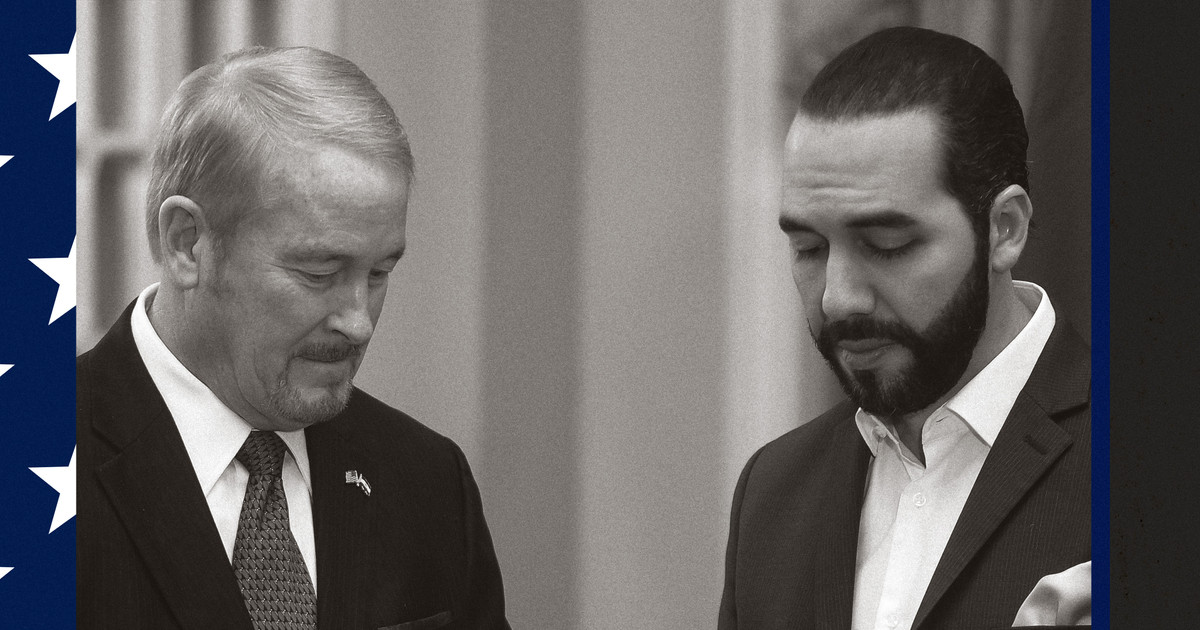
In August 2020, El Salvador’s President Nayib Bukele made a striking request to U.S. Ambassador Ronald D. Johnson. Salvadoran authorities had intercepted a conversation between a journalist and a U.S. embassy contractor discussing allegations of corruption among Bukele’s senior aides. The contractor, a U.S. citizen, was instrumental in investigations targeting the president’s inner circle, having previously assisted an FBI-led task force in uncovering potential collusion between the Bukele government and the notorious MS-13 gang, known for its involvement in heinous crimes, including murder and trafficking.
The contractor’s findings suggested that Bukele’s aides had met with gang leaders in prison, agreeing to provide them financial support and protection in exchange for a reduction in violence. This information posed a significant threat to Bukele’s administration, prompting the president to seek the contractor’s removal from the country. In Johnson, a former CIA officer appointed by President Trump, Bukele found a powerful ally. Upon receiving recordings of the intercepted conversation, Johnson swiftly initiated an investigation that led to the contractor’s dismissal.
This incident was not an isolated event, as revealed by a ProPublica investigation based on a previously undisclosed report from the State Department’s inspector general. This inquiry, alongside interviews with U.S. and Salvadoran officials, suggests a troubling pattern of behavior from Johnson, who has been accused of shielding Bukele from both U.S. and Salvadoran law enforcement efforts. Notably, Johnson exhibited little interest in pursuing the extradition of an MS-13 leader who could have served as a crucial witness in the gang pact investigation.
Despite the Biden administration’s attempts to challenge Bukele’s increasingly authoritarian tendencies, Johnson maintained his support for the Salvadoran leader after leaving his post, further solidifying Bukele’s status as a favored figure among Republicans. This relationship drew concern from senior State Department officials, leading Johnson’s successor, Jean Manes, to investigate the contractor’s dismissal. Manes concluded that Bukele directly requested the contractor’s removal to halt anti-corruption investigations, a decision that raised alarms within the Biden administration.
Manes’ investigation also resulted in the ousting of the CIA station chief, a close ally of Johnson, who was perceived as being overly sympathetic to Bukele. This decision was made amid concerns that the station chief’s relationship with Bukele undermined U.S. efforts to confront the Salvadoran president over issues of corruption and democracy.
The political dynamics within the embassy became increasingly fraught under Manes, who faced resistance from a faction of senior staff loyal to Johnson. Tensions escalated as she attempted to curtail communications between embassy personnel and Bukele’s government, leading to a temporary diplomatic freeze. Her departure from El Salvador in late 2021 marked a low point in U.S.-El Salvador relations, coinciding with Bukele’s growing authoritarianism.
In the aftermath, Johnson continued to publicly praise Bukele, even posting a photograph of them together on social media, signaling his unwavering support. This relationship was further solidified through a campaign to rehabilitate Bukele’s image in the U.S., transforming him into a prominent figure within conservative circles. Johnson and lobbyists worked diligently to strengthen Bukele’s ties with influential Republicans, helping him navigate the political landscape in Washington.
Amidst the backdrop of these relationships, Bukele’s administration faced mounting scrutiny over allegations of a secret pact with MS-13, which purportedly involved financial incentives and political influence in exchange for reduced violence. This arrangement raised serious ethical concerns and prompted investigations from U.S. law enforcement agencies.
As the political landscape in El Salvador shifted, with Bukele consolidating power and undermining democratic institutions, the Biden administration found itself grappling with the implications of its previous engagement with Bukele. The stark contrast between the Trump administration’s supportive stance and Biden’s more critical approach highlighted a significant shift in U.S. foreign policy toward Central America.
Ultimately, the fallout from these developments underscores the complex interplay between U.S. diplomacy and the realities of governance in El Salvador. As concerns over human rights and democratic backsliding intensify, the legacy of Johnson’s ambassadorship and his relationship with Bukele will likely continue to provoke debate about the appropriate U.S. response to authoritarianism in Latin America.


